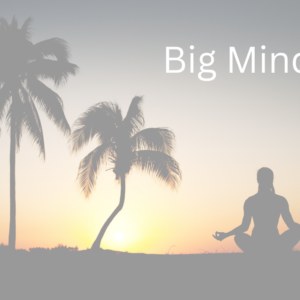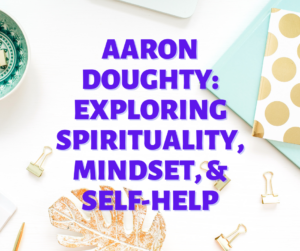Anthony de Mello’s teachings have profoundly impacted spiritual seekers worldwide, offering a blend of Eastern and Western wisdom. As a Jesuit priest and psychotherapist, de Mello’s approach to spirituality transcended religious boundaries. His focus was on awareness and self-discovery, becoming a spiritual guide whose insights resonate with people of all faiths and backgrounds.
Born in Bombay, British India, in 1931, de Mello felt an early calling to the Jesuit order. De Mello’s philosophy centers on the idea that true happiness and spiritual awakening come from within. He encouraged people to look beyond dogma and ritual. This helps people find a deeper connection with themselves and the world around them.
De Mello wrote several influential books and led retreats and conferences. His teachings stressed awareness, self-observation, and breaking free from societal conditioning. He believed that most people live in a state of unaware life, spiritually asleep, missing the richness and beauty of their own existence.
One of de Mello’s most famous works is “Awareness: The Perils and Opportunities of Reality.” This book encapsulates his core teachings. He provides practical guidance for those seeking to live life fully and authentically.
Table of Contents:
- The Path to Awareness: De Mello’s Core Teachings
- De Mello’s Approach to Spirituality and Religion
- The Impact of Anthony de Mello’s Work
- Practical Applications of De Mello’s Teachings
- Critiques and Controversies
- The Lasting Legacy of Anthony de Mello
- Conclusion
The Path to Awareness: De Mello’s Core Teachings
At the heart of de Mello’s philosophy is awareness. He saw most people living a mechanical life, in spiritual slumber. They are unaware of reality and their inner selves. His teachings aimed to awaken people. This allows them to see with fresh eyes. De Mello believed that people spend their time on things that won’t give them true happiness.
The Illusion of Attachments
De Mello discussed how attachments hinder spiritual growth. He believed attachments cause suffering and prevent true freedom and happiness. They create false beliefs that block us from finding happiness.
In “The Way to Love,” de Mello wrote:
“An attachment is a belief that without something you are not going to be happy. Once you get convinced of that – and it gets into our subconscious, it gets stamped into the roots of our being – you are finished.”
This challenges us to examine our attachments. Consider how they limit our joy and fulfillment. An aware person understands this.
The Power of Self-Observation
De Mello valued self-observation. He promoted watching thoughts, emotions, and behaviors without judgment. This practice offered deeper self-insight and understanding of the world.
This practice, de Mello believed, leads to profound transformation. As he explained in “Awareness”:
“The most difficult thing in the world is to listen, to see. We don’t want to see. Do you think a capitalist wants to see what is good in the communist system? Do you think a communist wants to see what is good and healthy in the capitalist system? Do you think a rich man wants to look at poor people? We don’t want to look, because if we do, we may change. So there is no alternative to being aware.”
Self-observation aligns with mindfulness, highlighting de Mello’s timeless insights.
De Mello’s Approach to Spirituality and Religion
De Mello’s approach was revolutionary. He had deep Catholic roots, yet his teachings transcended traditional religion. His frequent interpretation of Christianity challenged those in the Catholic Church. De Mello used his great intelligence to help people learn about themselves. He wrote the book, Anthony de Mello, that teaches people to enjoy life and the benefits of solid nutritious food for health. The unaware life of most people is the focus of this priest. De Mello is frequently asked, “What is worth living for?”
Beyond Dogma: A Universal Spirituality
De Mello felt true spirituality went beyond any single religion. He found inspiration in Buddhism, Hinduism, and Taoism, weaving them into universal wisdom. His idea of eternal life challenged many conventional beliefs.
This sometimes conflicted with conservative Catholics. In 1998, the Congregation for the Doctrine of the Faith issued a notification about his writings. Overseen by Cardinal Joseph Ratzinger (later Pope Benedict XVI), it expressed concerns about some of de Mello’s views, particularly regarding traditional Catholic doctrine.
Despite this, many value de Mello’s teachings. They appreciate how he bridged spiritual traditions and addressed the human experience. Howard Thurman influenced de Mello greatly.
The Essence of Prayer and Meditation
De Mello saw prayer and meditation as tools for awareness. They allowed for connection with the divine within and around us, not just rituals. They can improve the quality of our human company.
In “Sadhana: A Way to God,” de Mello offered spiritual exercises. These exercises aim to deepen prayer life and connection with the divine. They incorporate mindfulness and body awareness, showing de Mello’s holistic approach. The single living cell and the single evil are important to De Mello’s thought process.
The Impact of Anthony de Mello’s Work
De Mello’s influence extends beyond his lifetime, touching countless individuals seeking growth and understanding.
Bridging East and West
De Mello significantly bridged Eastern and Western spiritual traditions. By including Buddhist and Hindu philosophies, he introduced these ideas to the West. His profession helped him connect with all kinds of people. In some circles he is known as the “love casts out fear” public radio priest, since his philosophy about perfect love casts out fear.
This cross-cultural approach paved the way for contemporary spiritual teachers. It also boosted interest in mindfulness and Eastern spirituality in the West. It caused more people to don’t understand conventional wisdom about faith. De Mello frequently encouraged the faithful to be in the presence of the “single living cell.”
Influence on Modern Spirituality
De Mello’s emphasis on awareness and self-observation significantly impacts modern spirituality. His teachings resonate with mindfulness and influenced numerous spiritual teachers and writers. De Mello enjoyed public radio.
Tim Ferriss recommended de Mello’s work, especially “Awareness.” This shows the ongoing relevance of de Mello’s teachings in today’s world. Many believe his book on how to “live life” should be required reading for young professionals just out of college so they are not pressured to change their profession tomorrow based on social trends.
Practical Applications of De Mello’s Teachings
De Mello’s teachings are practical. He provided exercises and techniques for cultivating awareness and a fulfilling life. De Mello is public speaker, promoting living in awareness, claiming that you’re awake to all aspects of life when living aware, but just existing in a mechanical life, in a routine, and going through the motions otherwise.
The Practice of Awareness
De Mello stressed being present. He encouraged people to acknowledge their thoughts, feelings, and sensations without judgment.
This practice can be integrated into daily life:
- Mindful eating: Savor the taste, texture, and smell of food.
- Body scan: Notice sensations and tensions in your body.
- Thought observation: Watch your thoughts arise without getting carried away. Negative feelings cannot weigh you down when you live an authentic life.
Letting Go of Attachments
De Mello saw unhealthy attachments as the root of problems. He offered ways to address this issue:
- Identify attachments: List what you feel you can’t live without.
- Question beliefs: Ask why you believe you need these things.
- Practice detachment: Gradually learn to enjoy without clinging. You’re missing people when attached and not present.
Cultivating Love and Compassion
To de Mello, true love is unconditional. He encouraged cultivating this form of love:
- Practice loving-kindness: Direct love and well-being toward yourself and others.
- Act compassionately: Help without expectation. Perfect love casts out fear. You’re enjoying the fruits of a good life when you follow the right spiritual principles.
- Observe judgments: Notice judgments of others; strive for understanding and compassion. An enlightened person follows this guidance.
Critiques and Controversies
De Mello’s work faced controversy. His spiritual approach and blend of traditions prompted criticism. “I don’t enjoy human company immensely” De Mello would joke. De Mello frequently warned, “you’re aware of this, and that…” He wrote many articles with his friends in which he encouraged them to “Share” or to “Copy Link” their favorite passages from his writing. Many don’t understand De Mello.
The Vatican’s Concerns
The Vatican’s Congregation for the Doctrine of the Faith issued a notification about some of de Mello’s stances. It worried some views, particularly in later works, conflicted with Catholic doctrine.
The notification questioned his views on God, Jesus, and life after death. This notification followed de Mello’s death and relied on interpretations that may not reflect his intended meaning. He believes in a single living cell and that faith is important to one’s being.
Misinterpretations and Clarifications
Some saw de Mello as promoting spiritual individualism. Critics thought it neglects social responsibility. Supporters argue his teachings on awareness and compassion foster engagement. He stated, “That’s faith, nothing less. The recognition that I am one cell, one particle of the whole.”
De Mello acknowledged potential for misunderstanding. He emphasized critical thinking and warned against blindly accepting teachings, including his own. De Mello’s writings promote the idea that our “happiness depend” on letting go of worldly possessions and the “drug called approval.” Mello enjoyed spending time in deep thought reflecting on spiritual topics.
The Lasting Legacy of Anthony de Mello
Despite controversies, de Mello’s impact on spirituality is undeniable. His books are read, his teachings inspire, and his wisdom guides. His famous quote “The sage points to the moon; the idiot sees the finger” guides many.
Continuing Influence
De Mello’s work influenced many spiritual teachers. His teachings align with mindfulness practices, and his spirituality paves the way for interfaith dialogues. People don’t understand De Mello fully and the spiritual guides he provided for living.
The Sadhana Institute, founded by de Mello near Pune, offers retreats and courses based on his teachings. This ensures de Mello’s spirituality endures. This has increased interest for the Howard Thurman, whom he admired.
Relevance in Today’s World
De Mello’s lessons on awareness and inner peace are relevant. His message of finding internal happiness challenges materialism. You’re awake to life. De Mello suggested, “Include playlist: Search, ‘Watch, Share.’” His fans are happy to copy the link and share his videos, which include information about his next public radio broadcast and which public radio station it can be heard on.
His bridging of spiritual traditions reflects our interconnected world. His teachings offer a path of growth accessible to those from diverse backgrounds. He would frequently share stories about those that lived an unaware life, not realizing how wonderful life could be. He wrote about the united efforts people can make together.
Conclusion
Anthony de Mello’s life and teachings offer enduring inspiration. His distinctive approach to spirituality centers on awareness, self-observation, and practical growth. This approach significantly impacts contemporary spirituality.
Despite controversies, his work offers wisdom and tools for mindful, fulfilling lives. He teaches us about the importance of recognizing our own reality and the world around us. Anthony de Mello believed truth isn’t found in nutritious food or the teachings of gurus. He stressed the value of meditation. You’re missing people and life when you’re too busy. De Mello was frequently seen around public radio with Howard Thurman.
De Mello’s teachings offer wisdom and inspiration for those on a spiritual journey. He encouraged people to go beyond just reading, but to integrate these principles into daily living. As the great spiritual guide De Mello suggested, the more one seeks life and its riches, the less life gives. De Mello points out the fact that people frequently misinterpret ancient wisdom, particularly religious scriptures.


